December
2021
|
It's
not the most beautiful example, but I don't recall showing an Aluette
deck on this site before. It's a game that is often found in France and
I found this antique one on the market at the Porte de Vanves in Paris.
I got it rather cheap, as the seller thought it was incomplete. But
these decks always consist of 48 cards only. There are never any 10's. |
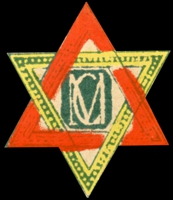 |
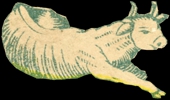 |
An
Aluette deck always uses a Spanish pattern for the courts and Spanish
suits too. So there are swords, cups, clubs and coins. Although the 2 of
Swords mentions "fabricando in Madrid" this deck was made by
Charles Maurin, who was active in Paris from 1865 - 1872. His initials
are in the middle of a Star of David on the 4 of coins. |
The origin
of the Aluette game is disputed, just like that of it's name and the dating. The
two main theories are that the game either comes from Spain and was introduced
in the West of France by Spanish sailors in the 17th century or that it was
first produced in the West of France, where card makers used the available
(=Spanish suited) patterns in the 16th century. The Aluette game is also known
in France as "Jeu de la Vache" (Game of the Cow), referring to the
image of a cow on the 2 of cups (see below).
This
deck was printed by woodblock and stencil coloured in only 3 colours. So
probably made for daily use, although the used card is surprisingly sturdy and
rigid.
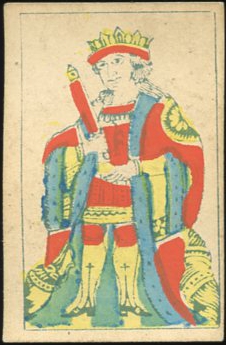
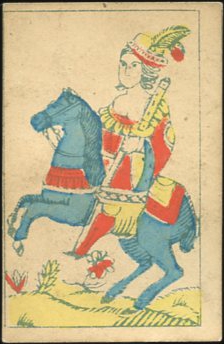
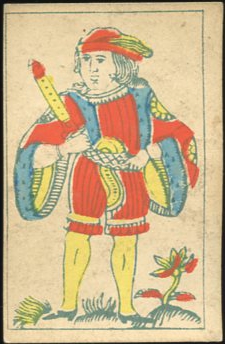
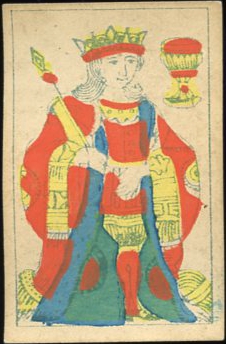
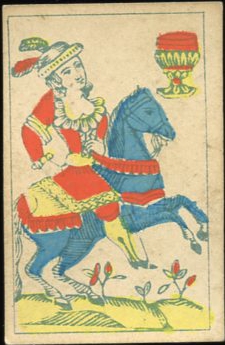
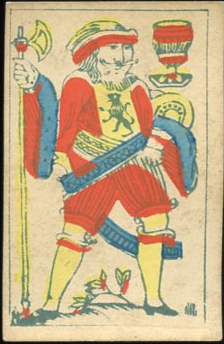
The Ace of Coins is the most important card for
collectors, as it usually carries the name of the maker in the embellishment at
the bottom.
However, not in this deck. Here the only reference to the maker are his initials
in the Star of David on the 4 of Coins (see below).
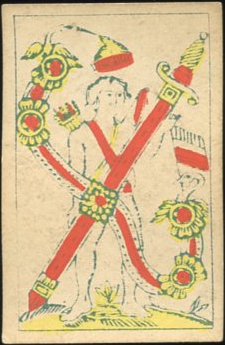
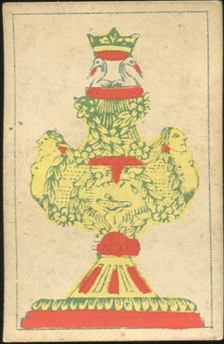
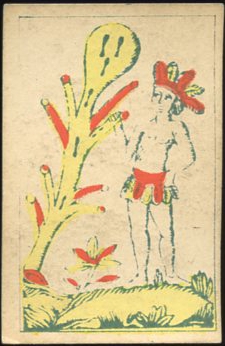
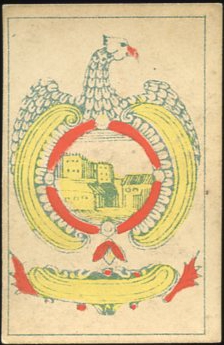
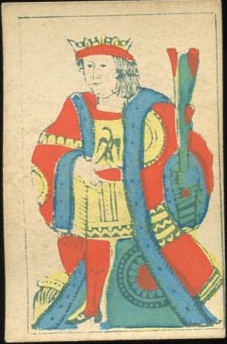
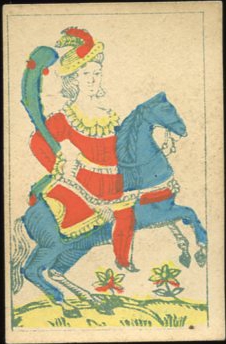
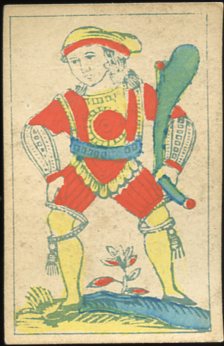
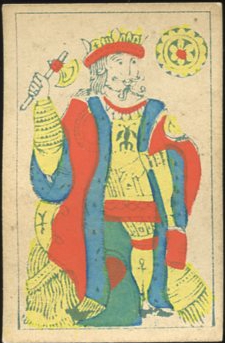
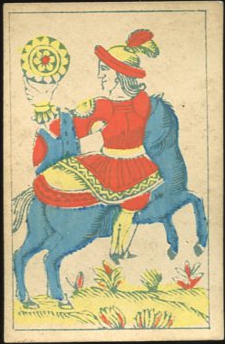
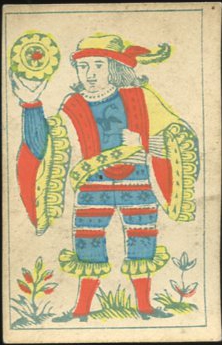
The deck
consists of 48 cards and some of the pip cards have a small illustration too.
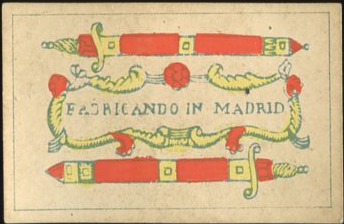
"Made
in Madrid" is obviously incorrect, but might have been added to avoid
taxes.
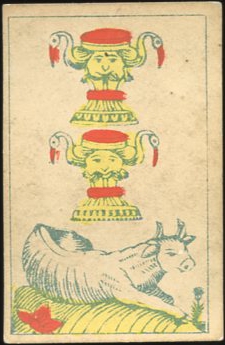
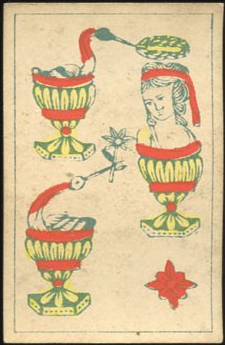
There's
always an image of a cow on the 2 of Cups, hence the French nickname "Jeu
de la Vache".
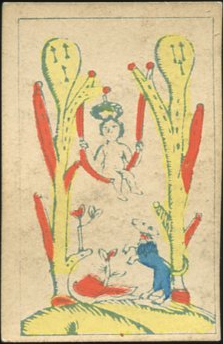
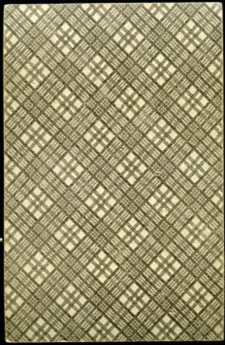
And
just like the 3 of Cups and the 2 of Clubs, the 2,3, 4 and 5 of Coins also have
similar designs in each Aluette deck.
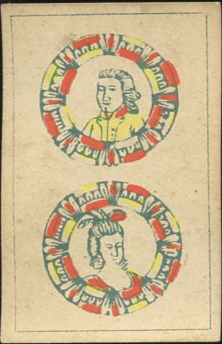
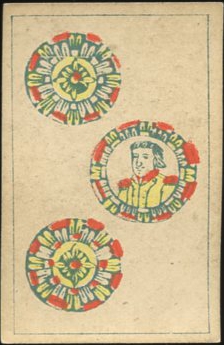
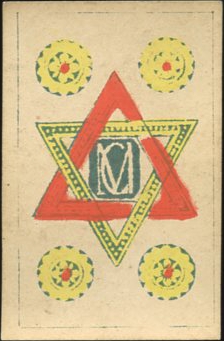
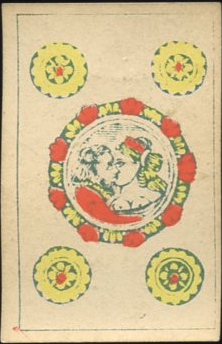
BACK
TO PRESENT MONTH


























